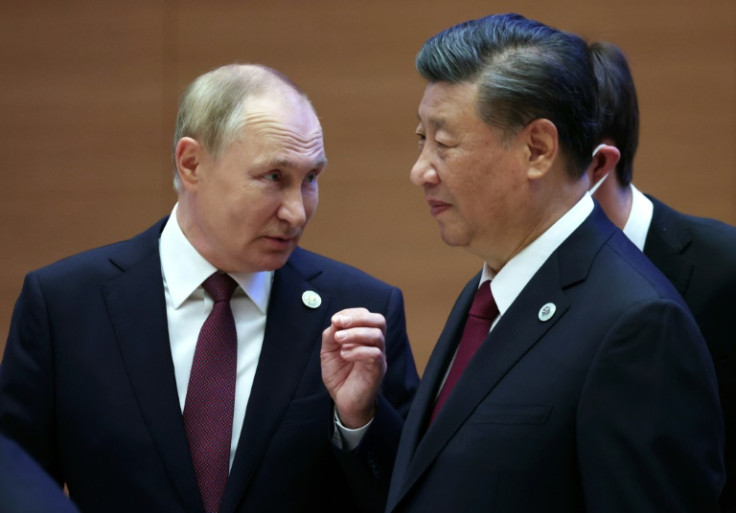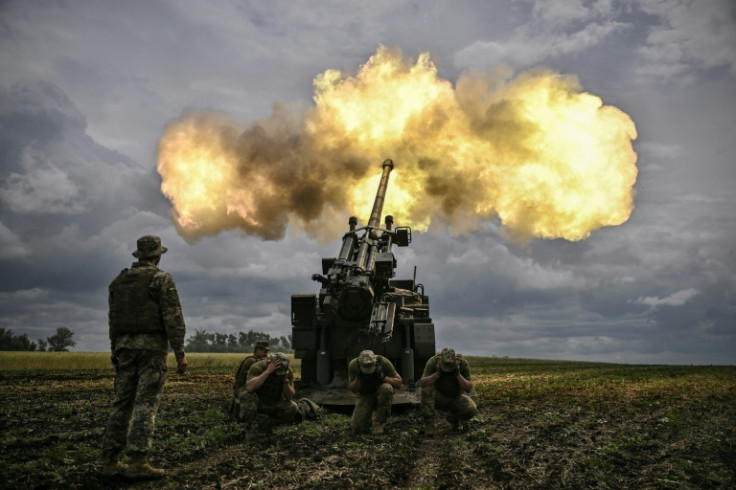Ambassador: China, Russia 'No Limits' Friendship Is 'Nothing But Rhetoric'; Beijing Not Siding Putin On War

KEY POINTS
- China's ambassador to the European Union claimed that some misinterpreted Russia and China's relationship
- Fu Cong said China has not provided military assistance to Russia despite their "no limits" ties
- Fu said China is not siding with Russia on the war despite a lack of high-level talks with Ukraine
A Chinese ambassador downplayed Russia and China's declaration of a limitless friendship as his country tried to project neutrality in the raging war in Ukraine.
In an interview with The New York Times, Fu Cong, China's ambassador to the European Union, insisted that China was not on Russia's side in the conflict and claimed that some people "deliberately misinterpret" the two countries' relationship.
"'No limit' is nothing but rhetoric," Fu said.
The ambassador told the publication that China had not provided military assistance to Russia and didn't recognize the Russian annexation of some Ukrainian territories despite the two countries' leaders further deepening their relationship last year.
Fu said Beijing has not condemned the Russian invasion of Ukraine because "the root causes are more complicated" than Western leaders say and because it understood Russia's defensive behavior against NATO.
The Chinese ambassador also addressed the lack of communication between Chinese President Xi Jinping and Ukrainian President Volodymyr Zelensky.
Fu said there were already lower-level contacts between China and Ukraine and claimed that Xi has not been able to call Zelensky because he is very busy.
"The fact that President Xi is not speaking to Zelensky does not signify that China is on the side of Russia on the Ukrainian issue," Fu said.
In February 2022, a few weeks before the first Russian tanks and soldiers set foot on Ukrainian territory, Russia and China had declared a "no limits" relationship.
In a joint declaration, Xi and Russian President Vladimir Putin vehemently opposed NATO's expansion in Eastern Europe, claiming it poses a national security risk to Russia.
"The sides oppose further enlargement of NATO and call on the North Atlantic Alliance to abandon its ideologized cold war approaches, to respect the sovereignty, security and interests of other countries, the diversity of their civilizational, cultural and historical backgrounds, and to exercise a fair and objective attitude towards the peaceful development of other States," the joint declaration released by the Kremlin said.
The two leaders also called on the U.S. to scrap its plans to deploy missiles in Europe and Asia and withdraw its nuclear weapons scattered around the globe.
Xi and Putin also criticized the U.S. for supporting "color revolutions," which constitutes foreign interference.
Russia and China continued to build upon their joint declaration, and the two leaders met in Moscow recently to further deepen their relationship.
Last month, Xi traveled to Russia for a state visit to project himself as a peacemaker.
Xi presented to Putin his proposed peace plan to end the conflict in Ukraine, which included the resumption of peace talks and cessation of hostilities.
Russia welcomed Xi's peace plan, claiming Beijing has an "unbiased position" on the conflict in Ukraine.
Russia said it appreciates China's "readiness to play a positive role in a political-diplomatic settlement of the Ukrainian crisis," Reuters reported.

© Copyright IBTimes 2024. All rights reserved.






















